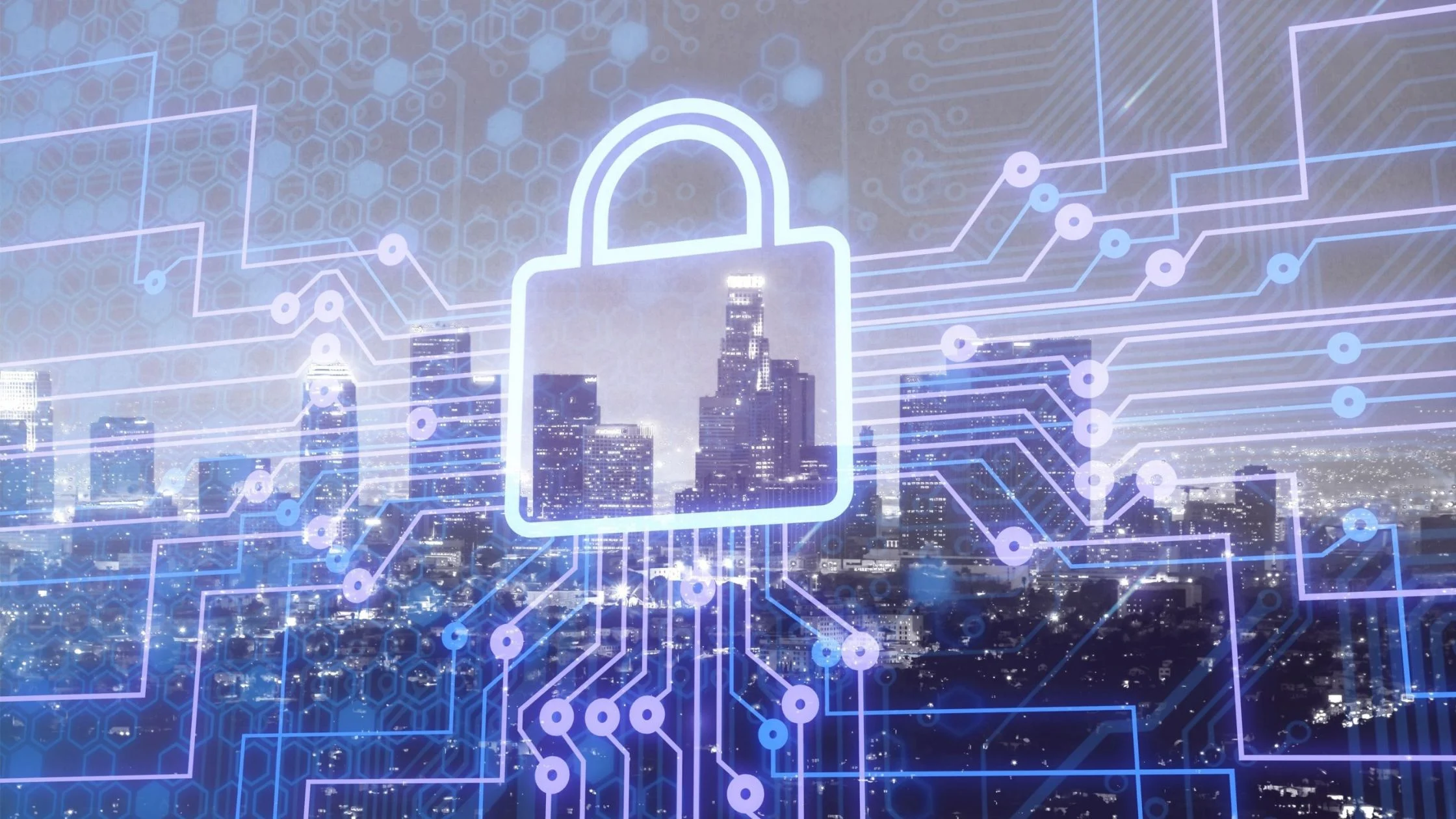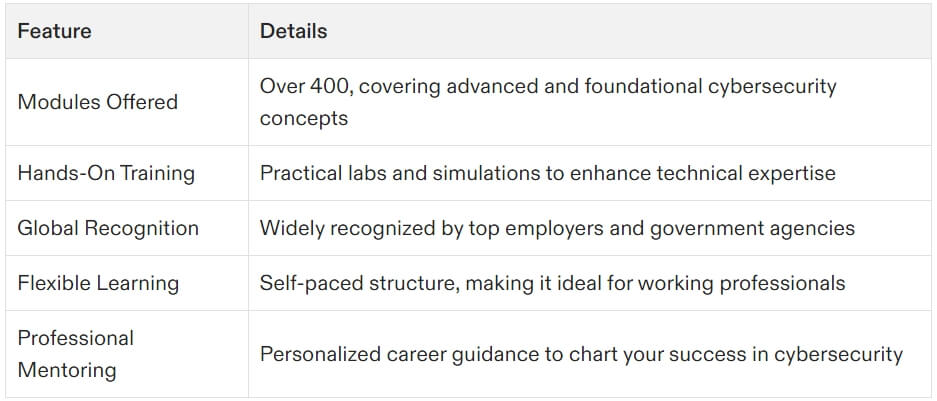Table of Contents
- What Is the NSA Cybersecurity Certification?
- Why Pursue NSA Cybersecurity Certification?
- How to Pursue the NSA Cybersecurity Certification
- Preparation Tips for NSA Cybersecurity Certification
- ACSMI Certification
- (FAQs) Frequently Asked Questions About the NSA Cybersecurity Certification
- 1. What does the NSA cybersecurity certification focus on?
- 2. Who should pursue NSA cybersecurity certification?
- 3. Is the NSA cybersecurity certification hard to achieve?
- 4. How long is the certification valid?
- 5. Can beginners attempt the NSA certification?
- 6. What types of roles does this certification prepare you for?
- Final Thoughts
The demand for professional cybersecurity experts is at an all-time high as cyberattacks grow more sophisticated each day. While many certifications validate cybersecurity knowledge, few stand as prestigious as the NSA cybersecurity certification, which is synonymous with excellence and rigor in the field.
For individuals aspiring to be at the forefront of national and organizational security, earning the NSA certification is a powerful way to establish credentials.
From understanding its significance to planning your study regimen, here’s your ultimate guide to mastering the NSA cybersecurity certification.
What Is the NSA Cybersecurity Certification?
The NSA cybersecurity certification is a government-backed credential designed to ensure a robust skill set for professionals countering cyber threats. It is part of the National Security Agency’s (NSA) broader mission to protect national and organizational interests by empowering professionals with cutting-edge knowledge and technical expertise in cybersecurity.
This certification demonstrates expertise in areas like intrusion detection, system hardening, and risk assessment. It is often pursued by security professionals seeking to work in governmental, defense, or private sectors tasked with protecting critical infrastructure and sensitive information.
Importantly, as cybersecurity continues to evolve, the NSA certification remains a benchmark standard. Pairing this certification with a hands-on learning program like the ACSMI Certification makes it possible to strengthen both theoretical knowledge and practical application.
Why Pursue NSA Cybersecurity Certification?
Are you on the fence about pursuing the NSA cybersecurity certification? Here are compelling reasons why it’s a worthy investment in your career.
1. Industry Prestige
Earning this certification signals that you meet the highest standards of competency in cybersecurity. It holds significant weight in both public and private sectors.
2. Exclusive Job Opportunities
Professionals with NSA credentials are regularly chosen for high-profile government and defense roles, such as working with federal agencies, security consultancies, or multinational corporations.
3. Advanced Skill Recognition
From configuring firewalls to analyzing advanced persistent threats (APTs), the certification ensures you have a proven ability to tackle complex cybersecurity problems.
4. Lucrative Salaries
With the NAS cybersecurity certification listed on your résumé, doors open to positions with a salary range surpassing six figures. Data suggests that certified professionals earn 15–20% more than their non-certified counterparts.
5. Staying Relevant in a Changing Industry
The NSA updates its certification syllabus to reflect real-world challenges, including ransomware attacks, emerging malware, and modern-day strategies employed by malicious actors.
How to Pursue the NSA Cybersecurity Certification
1. Understand the Prerequisites
The NSA cybersecurity certification is not an entry-level credential. Candidates are expected to have a robust understanding of networking, operating systems, incident response, and security protocols. A foundational certificate like CompTIA Security+ or ACSMI Certification is often recommended as preparation.
2. Training Program
Candidates gearing up for this certification benefit immensely from NSA-endorsed training providers. Many industry practitioners also advocate pairing such training with real-world problem-solving, like active labs available through the ACSMI curriculum.
3. Examination Process
The certification exam is known for its rigor. With a wide array of situational and problem-based questions, it tests theoretical concepts alongside hands-on capabilities.
4. Continuous Professional Education
Once certified, professionals are encouraged to stay up to date with CPE (Continuing Professional Education) credit programs. This ensures you’re abreast of the tools and tactics keeping cyber threats in check.
Preparation Tips for NSA Cybersecurity Certification
1. Build a Strong Foundation
Before tackling the NSA certification, master foundational cybersecurity skills. Programs like ACSMI Certification, covering over 400 modules, ensure candidates are well-prepared.
2. Practice Hands-On Learning
Gaining practical experience is key. Build your own home lab setup using tools such as Kali Linux, Splunk, or even virtual machines to deploy various cybersecurity scenarios.
3. Leverage Online Forums and Communities
Many candidates recommend joining online forums or communities, similar to Reddit’s r/cybersecurity, to share preparation tips and experiences with peers.
4. Time Management
Break your study plan into manageable chunks. Allot fixed hours each day to focus on theory and simulations.
5. Practice Tests
Taking multiple simulation exams is crucial. Practice under timed conditions to familiarize yourself with the intensity of the real thing.
ACSMI Certification
(FAQs) Frequently Asked Questions About the NSA Cybersecurity Certification
1. What does the NSA cybersecurity certification focus on?
The certification focuses on advanced topics like penetration testing, intrusion detection, risk governance, and encryption, making candidates ready to handle real-world cybersecurity threats.
2. Who should pursue NSA cybersecurity certification?
It is ideal for mid- to senior-level cybersecurity professionals, such as security analysts, penetration testers, or those aspiring to work in government and defense roles.
3. Is the NSA cybersecurity certification hard to achieve?
Yes, it’s one of the more challenging certifications due to its advanced syllabus, covering topics like threat analysis, cryptography, and penetration testing. It requires prior experience in cybersecurity, so it isn’t ideal for beginners. However, structured preparation using resources like the ACSMI Certification, which includes practical labs and key concepts, can help candidates build confidence and overcome the challenges effectively.
4. How long is the certification valid?
The certification is typically valid for three years. Professionals will need to complete CPE credits or retake the exam to maintain their credentials.
5. Can beginners attempt the NSA certification?
It’s not recommended for absolute beginners. Gaining foundational certifications and experience first can make the path smoother.
6. What types of roles does this certification prepare you for?
This cybersecurity certification equips professionals for a variety of roles, such as cybersecurity analyst, penetration tester, security consultant, and systems auditor. Additionally, it opens pathways to higher-level positions in government agencies, defense contractors, and large corporations focused on robust cyber defense infrastructure.
Final Thoughts
Earning the NSA cybersecurity certification is no easy feat, but the benefits it brings to your career are unmatched. From enhancing your technical proficiency to opening doors to exclusive roles in government and private sectors, this certification is worth the effort.
Paired with the right resources, like the ACSMI Certification, aspiring candidates can gain the confidence to tackle real-world situations. Whether you’re a seasoned professional looking to demonstrate your expertise or someone seeking career growth in cybersecurity, the NSA certification serves as a gateway to success.
Don’t wait—start your path toward becoming a certified cybersecurity professional today and take charge of the future of digital defense!


Leave a Reply